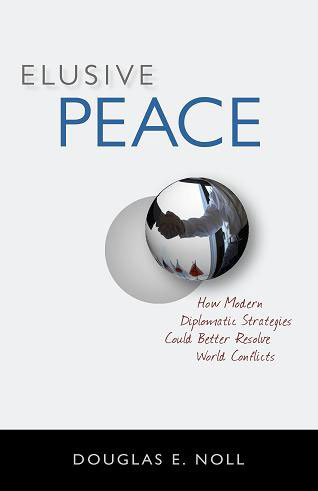If you liked Iraq and Afhganistan, you will love Somalia. I wonder what will be necessary for the elites in the diplomatic and international community to wake up to the fact that the system is not working. How many Rwandas, Bosnias, Iraqs, Afghanistans, and now Somalia, will it take to shift the way the world addresses deep conflicts and the crises that emmanate from them?
Somalia is a text book example of international failure. The warning signs for drought, famine, poverty, and death of tens of thousands of children have been well-known and documented for months, if not years. South-central Somalia is controlled by the militant semi-organization al-Shabaab. Al-Shabaab is paranoid about international NGOs, and a year ago, banned aid agencies from helping the Somali people in that region. In southern Somalia, there is no government; no sense of any authority, except for al-Shabaab. Al-Shabaab has no experience in managing humanitarian disasters because it is not truly a governmental organization.Nevertheless, al-Shabaab appeals to many Somalis, not because of an affinity for the radical Islamic goals of the organization, but because of economic and social interests. Like the Taliban in 1991, al-Shabaab ended the reign of the secular warlords. Unlike the Taliban, al-Shabaab has not been able to consolidate power or influence under a unified front. Its many factions only unite against the Transitional Federal Government, another extraordinarily weak and ineffective organization. Other than the common enemy, it’s every group for itself.
Even if NGOs could get in, daunting logistical problems exist. Only one port in the country is open to aid agencies, which is Mogadishu. Kismayo is not open because it is controlled by al-Shabaab. Port facilities are nonexistent; there is no machinery in place, and the port, roads, and transportation infrastructure has not been rehabilitated in the last twenty years. The region is full of checkpoints manned by local militias extorting money from anyone delivering food, water, and supplies to the people. Somalia is about as anarchic as a “country” can be.
The international system fails in this situation because it continues to make the false assumption that each nation is sovereign. Under the Treaty of Westphalia, each sovereign nation is represented by a “head of state” presumed to have the power to speak and negotiate with other “heads of state.” Al-Shabaab is not cohesive; it is a string of loosely aligned factions. No “head of state” speaks for al-Shabaab. No one person speaks with one voice for al-Shabaab. The traditional model of diplomatic negotiation is simply not well-adapted to anarchy of this type.
So what should be done? If you want a radical solution that will surely offend most of the international community and politicians of all persuasions, have the UN Security Council declare Somalia a failed state and impose a UN Protectorate status on the country. It would be nice if the African Union endorsed this plan, but not essential. Bring in a powerful, well-funded, and well-trained UN military force with a broad mandate to restore order with force wihen necessary, followed by a civil service bureacracy to set up and run a government, an interim court system to establish the rule of law, humanitarian relief, health care, and education. Plan on a 20 to 30 year mission, maybe longer; hopefully shorter. Rebuild the country from the ground up, trying to be as sensitive to the cultural, clan, and tribal ties as possible. Fnd the best and brightest young people, educate them, and groom them as potential political and civil society leaders. Be prepared for resistance, push back, and localized terrorism. Don’t have a timeframe and don’t withdraw when the project becomes politically unpalatable. Deal with corruption quickly, making clear that it will not be tolerated. Teach people the essentials of nonviolent conflict resolution, leadership, and consensus-building, using as much of the indigenous knowledge as possible. Use common sense and compassion whenever possible in making decisions. Put smart people in place with full authority and don’t second guess them. Insulate them from the inevitable influencers looking for personal advantage. Try not to make decsions based on the lowest political common denominator.
As a professional peacemaker, I can’t see any other way out of the quagmire of Somalia. My nose wrinkles at the idea of nation-building (look at Iraq and Afghanistan), but what other options are there? If anyone has some, let me know.
Doug Noll, Lawyer Turned Peacemaker, is the author of Elusive Peace: How Modern Diplomatic Strategies Could Better Resolve World Conflicts.



